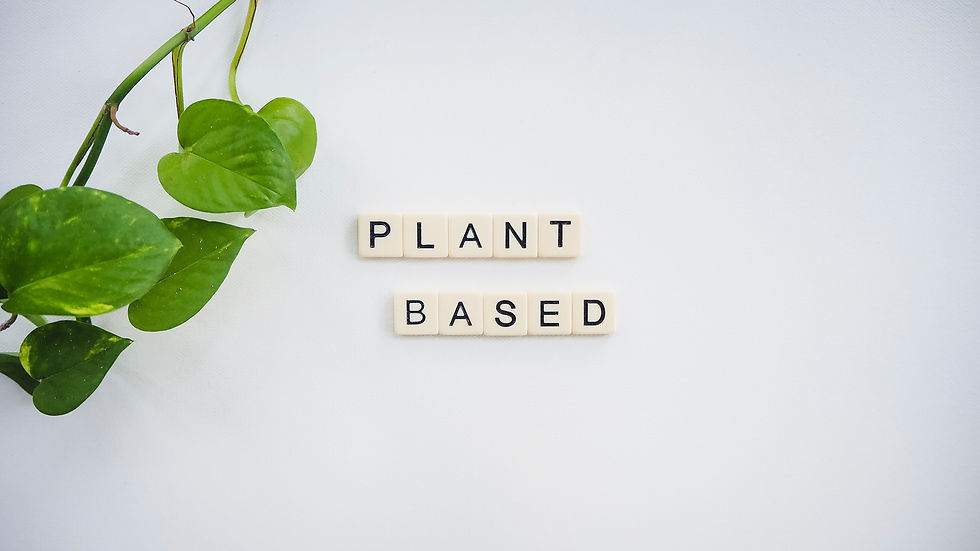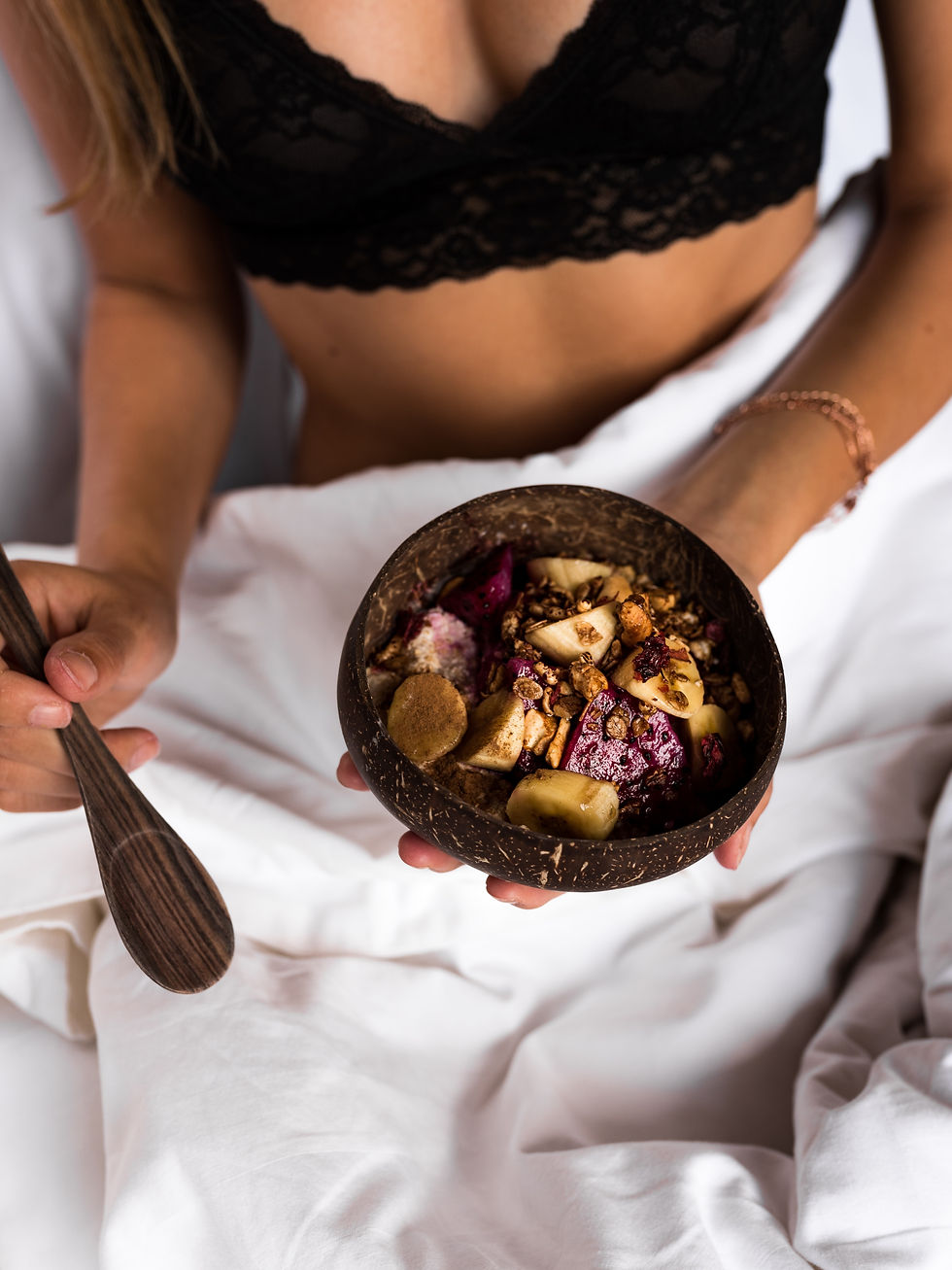What to Know About a Whole-Food Plant-Based Diet:
- eatswithalex
- Feb 12, 2020
- 3 min read
A plant-based diet is one that consists mainly or entirely of plant-based foods. A whole-food diet is one that focuses on consuming minimally processed foods and eating foods closest to their natural state. So, the whole-food plant-based diet meshes the two together! Plant based foods are simply foods from plants such as fruits, vegetables, nuts, seeds, legumes, etc. If you are looking to improve your health, switching to more of a plant-based lifestyle can quite beneficial.
This sounds similar to a vegetarian or vegan diet; however, it is different. This lifestyle offers you some more flexibility than the others.

Benefits:
Reduced inflammation: when you start to implement a plant-based diet you start adding in much more foods that have anti-inflammatory properties.
Berries, broccoli, avocados, peppers, mushrooms, grapes, turmeric, and extra virgin olive oil all have really high anti-inflammatory properties.
Reduced risk of chronic disease: a plant-based diet has the ability to reduce the risk of type 2 diabetes, heart disease, certain cancers, and other chronic illnesses.
Lose weight: It is no surprise that there is an #obesity epidemic – switching to less processed foods would decrease that exponentially. If we focused on what was actually going into our bodies instead of blindly eating whatever is most convenient, we could become a much healthier country. When you start implementing this kind of lifestyle the foods you eat will have a higher fiber content which in turn is one of the reasons we see a lowered risk is cancers such as colon cancer, but it also is a factor in #weightloss. Good fiber allows us to feel satisfied after meals as well as healing our #digestion.
Nuts, whole grains, pears, strawberries, avocado, apples, bananas, carrots, broccoli, artichoke, lentils, beans, peas, oats, and chia seeds are some foods that are higher in fiber that you can add to your diet!
Gut Hormones: adding in these plant based whole foods really benefit your gut hormones which results in regulating your satiety, blood sugar, and your weight.

Myths:
You won’t get enough protein: this is by far the most common myth I hear. The general population needs about 0.8 g of protein per kilogram of weight. It is very achievable to get enough protein with plant-based options.
Lentils, tofu, almonds, peanuts, quinoa, chickpeas, chia seeds, edamame, tempeh, potatoes, broccoli, mushrooms, and Ezekiel bread are all plant-based protein options.
To put this in perspective for you: I will give you a comparison of a plant-based breakfast and a non plant-based breakfast.
Non- Bacon egg and cheese breakfast sandwich
490 calories 28.7 g fat 30 g carb 28 g protein
Plant-based- 1 slice Ezekiel bread with 2 tablespoons peanut butter and a fruit smoothie (I used my gut healing smoothie recipe for reference)
430 calories 18 g fat 32 g carb 30.4 g protein
As you can see the plant-based option actually ended up having more protein that the non plant-based option.
You cannot gain muscle on a #plant-based diet: another big misconception that I have heard. In order to make your muscles larger you need two things, training and protein. As we have already explained above, you can definitely get your protein intake in while being part of this lifestyle, so the rest is up to you and your training routine to grow your muscles.
It is too expensive: This is not necessarily true; you just have to go in with a plan. Usually food that is already prepped is more expensive. So, things like the already cut up vegetables, prepared salads, etc. are going to be a little pricier than just buying the produce and assembling everything at home. You should also always keep frozen #vegetables and fruits in the freezer, they are so easy and not expensive. And another myth is that frozen fruits and vegetables have less #nutrients than fresh produce. This is not true at all, frozen has just as much nutrients as fresh. It’s great to have a mix of fresh and frozen, because if you are someone who buys too much fresh produce and then end up throwing half of it out, try just a little bit of fresh produce and some frozen! That way you have a better chance of not wasting the fresh stuff!
Sample day of eating plant-based:
Breakfast: oatmeal with cinnamon + 1 slice Ezekiel bread with peanut butter
Lunch: Veggie “fried” rice brown rice with frozen mixed vegetables, edamame, and tofu seasoned with sriracha, apple cider vinegar, onion powder, and garlic powder.
Dinner: Burrito bowlyou can stack whatever beans and grains you have on hand over some crispy tortillas and top them with half of an avocado, lettuce tomato and fresh herbs like parsley/cilantro.
Snack options: carrots and hummus, tortilla and guacamole, black bean taquitos, roasted chickpeas, fruit smoothie

This should be a good foundation of information for anyone who has thought about adopting a plant-based lifestyle. If you are interested in creating a #healthier body and the long-term health of your body, then implementing these ideas is a good start.



Comments